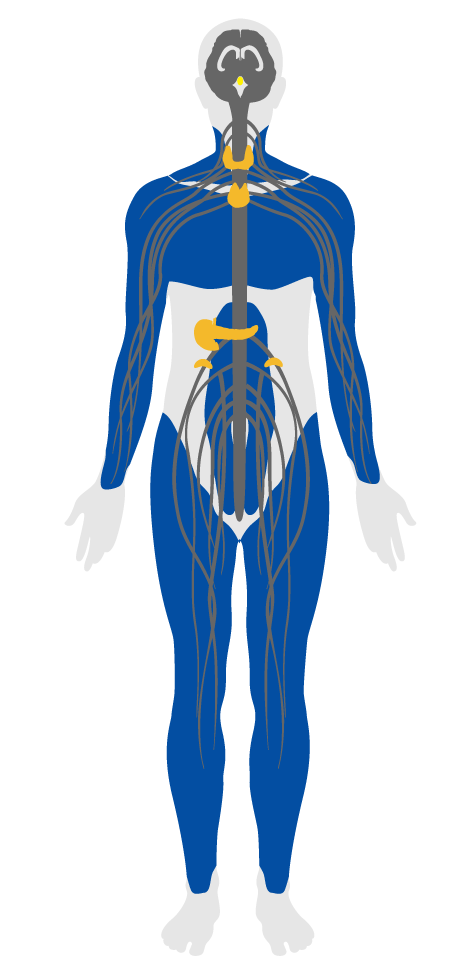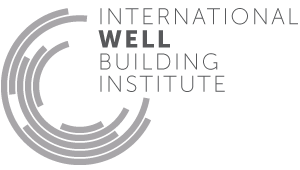Visual lighting design
- 53 Visual lighting design
- 54 Circadian lighting design
- 55 Electric light glare control
- 56 Solar glare control
- 57 Low-glare workstation design
- 58 Color quality
- 59 Surface design
- 60 Automated shading and dimming controls
- 61 Right to light
- 62 Daylight modeling
- 63 Daylighting fenestration
- P2 Light at night
- P3 Circadian emulation
53. Visual lighting design
Adequate light levels are needed for a broad variety of activities, including reading various qualities and types of print, and working on detail-oriented tasks. Brightness levels also contribute to the perception of spaciousness, as well as to the overall visual appeal of illuminated spaces. Targeted task lighting can provide the necessary amount of light at workspaces without over-illuminating ancillary spaces; ambient light levels of 300 lux are sufficient for most tasks.
This feature establishes light levels for basic visual performance. The strategy promoting the pairing of adjustable direct task lighting with indirect or diffuse ambient lighting allows user customization and good visual acuity while providing more suitable background light. Light intensity for visual acuity is measured in lux (or foot candles), which is a measure of the way the eye responds to light weighted to the response of the cone cells—the main photoreceptors for daytime vision, located on the retina of the human eye.
The following requirements are met at workstations or desks:
Provide a narrative that describes strategies for maintaining luminance balance in spaces, which takes into consideration at least two of the following:
The following light levels are achieved:
In all bedrooms, bathrooms, and rooms with windows, one or more fixtures provide the following:
The ambient lighting system at desks in classrooms for the specified age groups meet the following requirements:
The ambient lighting system at dining surfaces for the specified restaurant types meet the following requirements:

Applicability Matrix
| Core & Shell | New & Existing Buildings | New & Existing Interiors | |
|---|---|---|---|
| Part 1: Visual Acuity for Focus | - | P | P |
| Part 2: Brightness Management Strategies | - | P | P |
| Part 3: Commercial Kitchen Lighting | - | - | - |
| Part 4: Visual Acuity in Living Environments | - | - | - |
| Part 5: Visual Acuity for Learning | - | - | - |
| Part 6: Visual Acuity for Dining | - | - | - |
| Commercial Kitchen | Education | Multifamily Residential | Restaurant | Retail | |
|---|---|---|---|---|---|
| Part 1: Visual Acuity for Focus | - | P | - | - | - |
| Part 2: Brightness Management Strategies | - | P | - | - | - |
| Part 3: Commercial Kitchen Lighting | P | - | - | - | - |
| Part 4: Visual Acuity in Living Environments | - | - | O | - | - |
| Part 5: Visual Acuity for Learning | - | P | - | - | - |
| Part 6: Visual Acuity for Dining | - | - | - | P | - |
Verification Methods Matrix
| Letters of Assurance | Annotated Documents | On-Site Checks | |
|---|---|---|---|
| Part 1: Visual Acuity for Focus | Architect | Spot Measurement | |
| Part 2: Brightness Management Strategies | Architect | Professional Narrative | Spot Measurement |
| Part 3: Commercial Kitchen Lighting | Architect | Spot Measurement | |
| Part 4: Visual Acuity in Living Environments | Architect | Spot Measurement | |
| Part 5: Visual Acuity for Learning | Architect | Spot Measurement | |
| Part 6: Visual Acuity for Dining | Architect | Spot Measurement |
| 53.1.c |
The Ontario Ministry of Labour's "Computer Ergonomics: Workstation Layout and Lighting" provides a checklist for computer workstations, which includes checking that light levels fall within 300-500 lux, and also that task lights are provided if required. |
| 53.3.a |
The lighting level values in the U.S. GSA’s 2003 Facilities Standards (P100) are set at 500 lux for kitchens. |
| 53.3.b |
The Dining Services Ergonomic Design Guidelines recommends lighting levels between 70 and 100 foot candles in warewashing areas for the safety and wellbeing of foodservice employees. |
| 53.6.a |
ANSI/IES RP-1-12 provides Table B1 for recommended maintained illuminance targets for the horizontal plane. Table B1h recommends a target value of 150 lux for cafeterias. |
| 53.6.b |
ANSI/IES RP-1-12 provides Table B1 for recommended maintained illuminance targets for the horizontal plane. Table B1h recommends a target value of 100 lux for casual dining and 200 lux for fast food dining. |
| 53.6.c |
ANSI/IES RP-1-12 provides Table B1 for recommended maintained illuminance targets for the horizontal plane. Table B1h recommends a target value of 30 lux for fine dining. |
